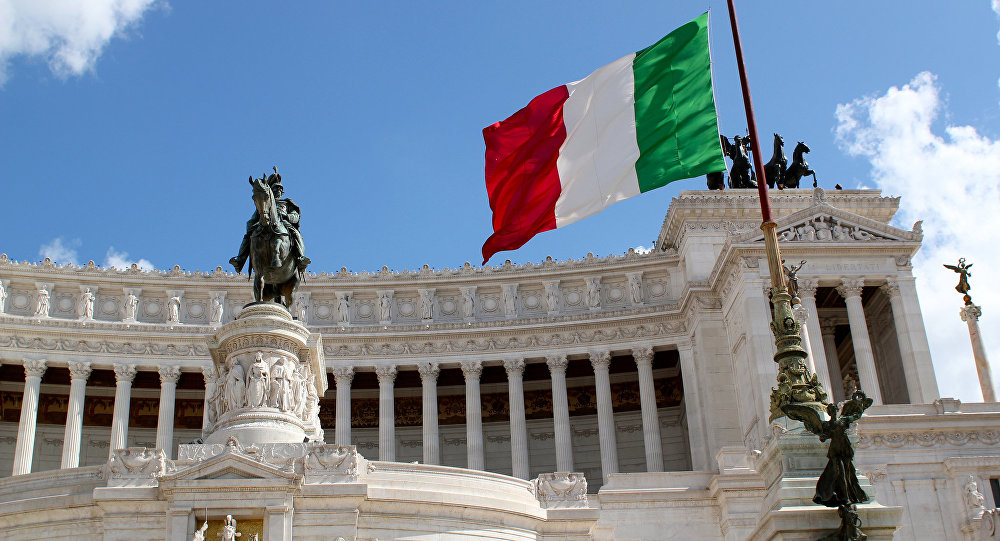Italy’s Finance Minister Defends Proposed 42% Capital Gains Tax on Cryptocurrencies Amid Criticism
01.11.2024 12:30 1 min. read Alexander Zdravkov
Italian Minister of Economy and Finance Giancarlo Giorgetti has defended the government's plan to increase the capital gains tax on cryptocurrencies like Bitcoin from 26% to 42%, pushing back against critics at a World Savings Day event on October 31.
He emphasized the “very high level of risk” associated with digital assets, justifying the proposed tax hike, which still requires approval from Italian lawmakers before implementation.
Giulio Centemero, a member of Italy’s Chamber of Deputies, has labeled the tax increase as “counterproductive,” advocating for more discussions among lawmakers. The Italian government anticipates generating approximately $18 million annually from the tax hike.
This follows a previous increase in 2023, where the capital gains tax for crypto trading exceeding 2,000 euros was raised to 26% as part of a budget plan.
Additionally, as a member of the European Union, Italy will adhere to the Markets in Crypto-Assets (MiCA) framework set to take effect in December.
While this regulatory framework primarily targets stablecoin issuers and aims to enhance user protection and mitigate market manipulation, it is unlikely to impact the government’s ability to levy taxes on cryptocurrencies.
-
1
FCA Considers Opening Crypto ETNs to UK Retail Investors
07.06.2025 9:00 2 min. read -
2
Russia Hits Pause on Expanding Crypto Mining Restrictions
07.06.2025 11:00 1 min. read -
3
U.S. State of Connecticut Blocks Crypto from Public Sector Operations
12.06.2025 16:00 1 min. read -
4
Vietnam Charts a Clear Course for Digital Assets With New 2026 Law
16.06.2025 18:00 1 min. read -
5
Federal Reserve Clears Path for Banks to Enter Crypto Market
24.06.2025 8:00 2 min. read
Ripple Drops Cross-Appeal, Moves to End SEC Case “Once and for All”
Ripple CEO Brad Garlinghouse announced Friday that the company is officially dropping its cross-appeal in its long-running legal battle with the U.S. Securities and Exchange Commission (SEC), signaling a final move toward ending the years-long case.
Gemini Launches Tokenized MicroStrategy Stock for EU Users
Cryptocurrency exchange Gemini has announced the launch of tokenized MicroStrategy (MSTR) stock for customers in the European Union, enabling onchain access to one of the most prominent Bitcoin-related equities.
Turkey Targets Crypto Crime With New Withdrawal Delays and Transfer Limits
Turkey is preparing to roll out a series of strict crypto regulations aimed at curbing financial crimes tied to illegal gambling and online fraud, according to new comments from Finance Minister Mehmet Simsek.
Japan Plans Major Crypto Reform with New Tax Rules and ETF Access
Japan is preparing to dramatically reshape its cryptocurrency regulations, with officials drafting a proposal that would reclassify digital assets and streamline their tax treatment.
-
1
FCA Considers Opening Crypto ETNs to UK Retail Investors
07.06.2025 9:00 2 min. read -
2
Russia Hits Pause on Expanding Crypto Mining Restrictions
07.06.2025 11:00 1 min. read -
3
U.S. State of Connecticut Blocks Crypto from Public Sector Operations
12.06.2025 16:00 1 min. read -
4
Vietnam Charts a Clear Course for Digital Assets With New 2026 Law
16.06.2025 18:00 1 min. read -
5
Federal Reserve Clears Path for Banks to Enter Crypto Market
24.06.2025 8:00 2 min. read


